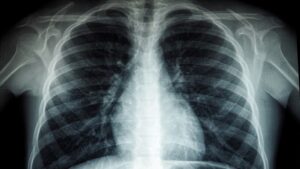[ad_1]
The number of women having sex and the number of women enjoying sex after menopause is increasing decreases with age. Although these findings are not surprising, the causes of this condition may not be purely organic, as has been observed by several studies, but psychological factors also play a role, according to new research. These findings were published in Menopause, a journal of the North American Menopause Society (NAMS).
A lot of research has been done on the symptoms of menopause in women (sweats, hot flashes, sleep disturbances, vaginal dryness and painful intercourse). But much less has been investigated about the psychological state of women after menopause. There are many factors that determine it, such as changes in appearance, self-confidence, stress, moodiness, and even personal relationships.
The new study, which involved around 4,500 menopausal women in the UK, focused mainly on why these women experienced certain emotions and how intense they were for them.
Among other things, from the study data, it appeared that on average, before the start of the annual check-up, half of these women were sexually active. A decrease in all expressions of sex life was observed over time: intercourse was less frequent, less pleasurable and more uncomfortable or even painful. The main reason for limited sexual activity was the absence of a partner, mainly due to widowhood.
Other common reasons for decreased sexual activity included some pathological condition of the partner, sexual dysfunction of the partner, women’s health problems, menopause-related symptoms and medication. They also contributed to the reduction of sexual activity problems within the relationship, social concerns and everyday difficulties.
Only 3% of participants reported positive sexual experiences, while only 6% of these women have sought medical advice and guidance.
“Sexual problems are quite common in women over time, and the relationship with the partner plays a very large role in the existence of a sex life and also in the satisfaction received from it. Also, the absence of a partner, sexual dysfunctions and poor physical condition of the partner as well as the conditions of the relationship play a very important role” says Dr. Stephanie Faubion, MD at NAMS.
“At the same time, menopause-related problems such as vaginal dryness and painful intercourse have been recognized as issues that interfere with sexual activity, yet unfortunately, few women seek medical help, even though there are several treatment options,” she adds.
Source: Sciencedaily
[ad_2]
Source link






